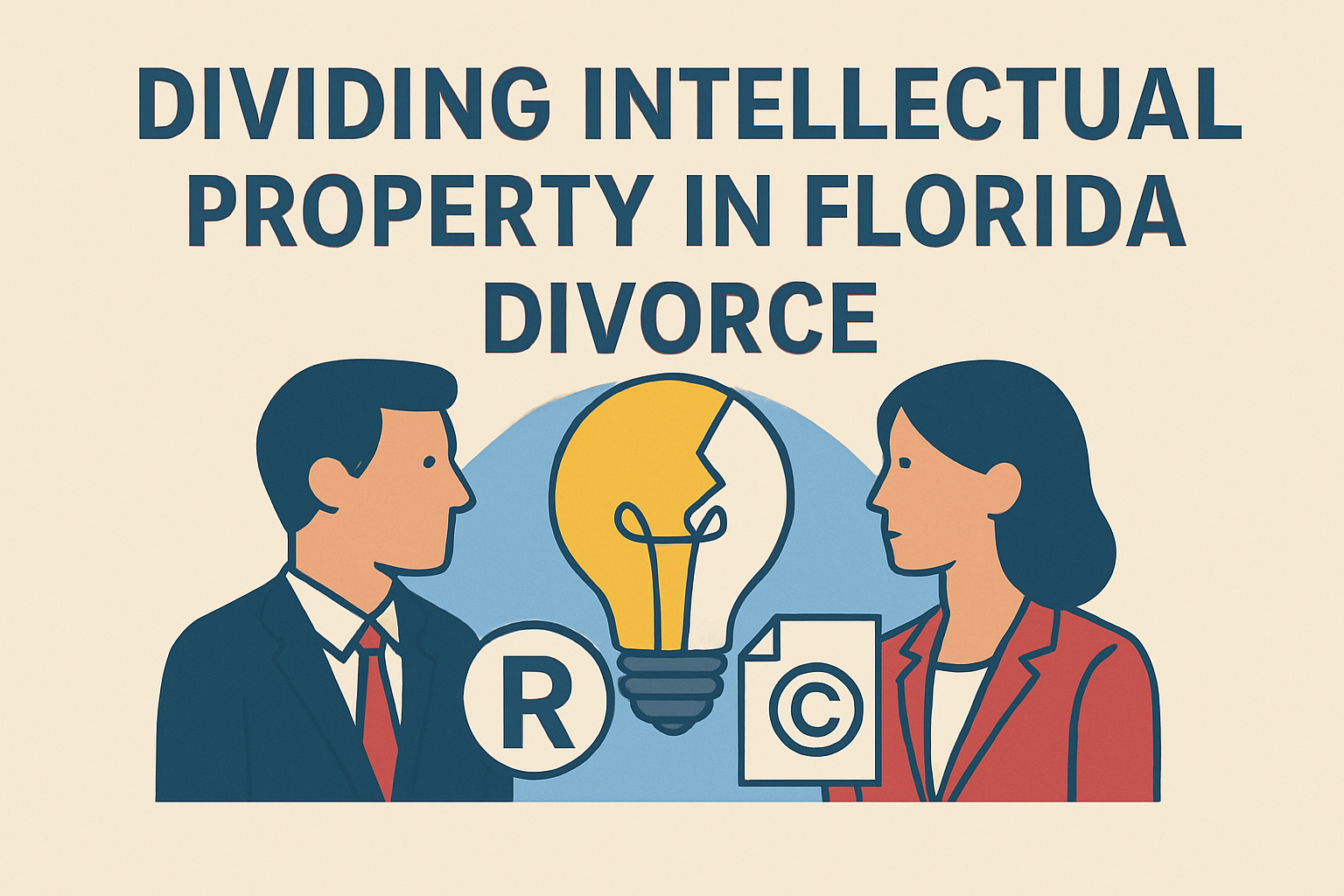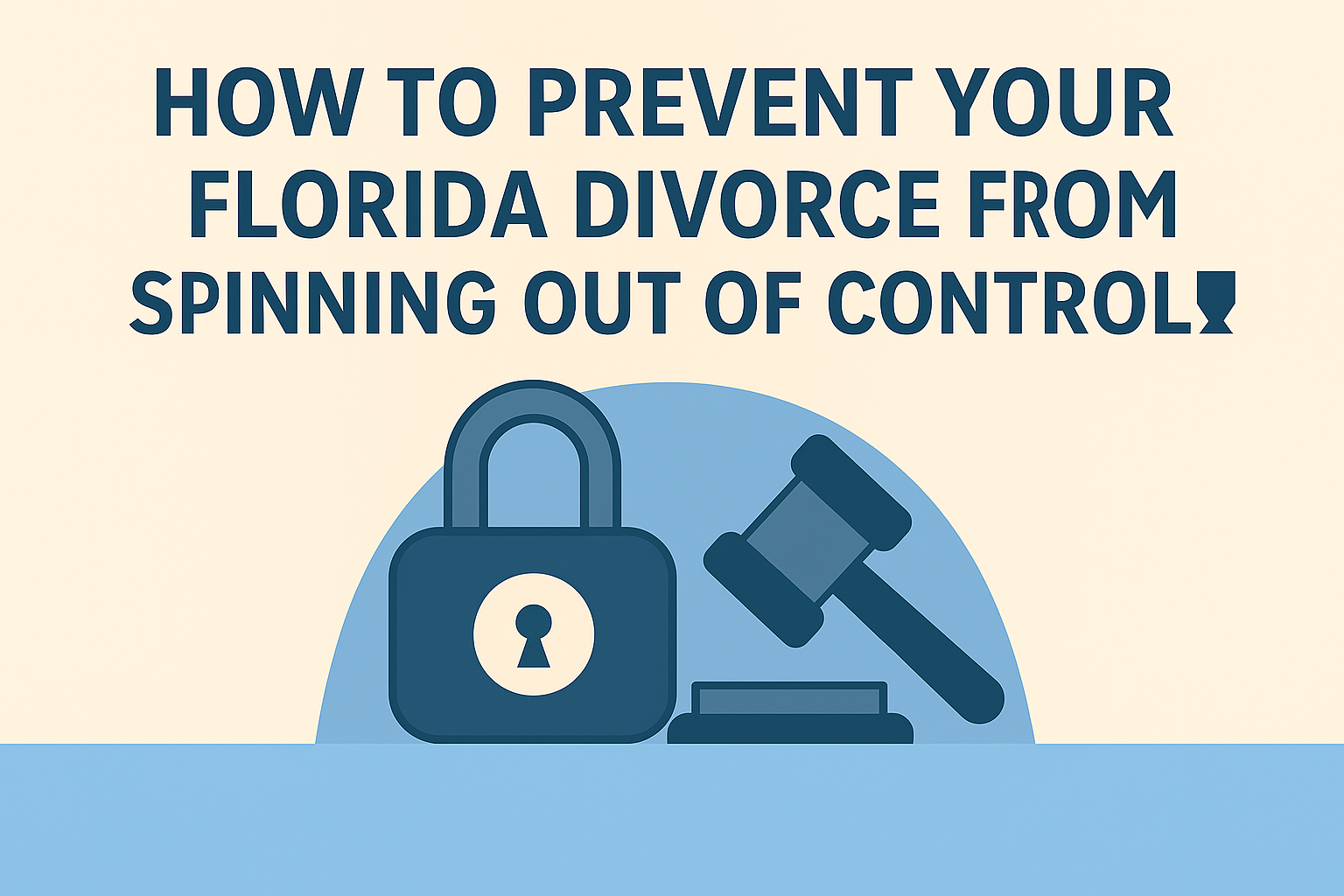Intellectual Property in Florida Divorce
If you’re a professional in Florida facing divorce, you might be wondering about the status of your intellectual property—things like patents, copyrights, or trademarks—when it comes to dividing assets. You’ve worked hard to build these creations, and it’s natural to want to protect them.
Understanding Marital vs. Non-Marital Assets
In Florida, assets and debts are generally divided into two categories: marital and non-marital. Marital assets are typically those acquired during the marriage, regardless of whose name is on the title. In essence, non-marital assets are those you owned before the marriage or received individually as a gift or inheritance.
So where does intellectual property fit in? If you created the intellectual property during your marriage, it’s likely to be considered a marital asset. If it was something you created beforehand, it might remain non-marital. But as with most things in family law, it can get more complicated.
Why High-Net-Worth Individuals Should Pay Attention
If you’re a doctor with a patented medical device, a lawyer with proprietary legal software, or a business owner with valuable trademarks, you need to know how these assets might be split. Dividing intellectual property is not as straightforward as dividing a bank account. The value can be hard to pin down, and future earnings or royalties can be an issue.
This is where Collaborative Divorce shines, especially for high-net-worth individuals. With a Collaborative approach, you and your spouse work as a team—alongside financial and legal professionals—to come up with a solution that makes sense for everyone. There’s no judge imposing a one-size-fits-all ruling, and your privacy is protected because you’re not battling it out in a public courtroom.
Valuing Intellectual Property: Multiple Approaches
When it comes to valuing intellectual property, there are several paths you might take. Sometimes you and your spouse might agree on a value yourselves, especially if the intellectual property’s worth is relatively straightforward or if you can find comparable assets to benchmark against.
In more complex cases, you may need a valuation expert—someone who specializes in determining the market value of intellectual property based on its earning potential, uniqueness, and the specifics of your industry. For instance, a patented medical device might be valued differently than a piece of copyrighted software, and having an expert can provide clarity.
Dividing the Value: Different Approaches to Equitable Distribution
Once you have a value, how do you divide it? There are multiple ways to do this. You might decide to trade the intellectual property interest for other assets—one spouse might keep the intellectual property while the other receives a lump sum or other marital assets of equivalent value. Alternatively, you might structure a buyout over time, where one spouse pays the other a certain amount with interest. This can offer flexibility and ensure both parties feel they’ve received a fair share of the marital estate.
The Collaborative Advantage for Privacy and Control
Unlike litigation, the Collaborative Process allows you to stay out of court and maintain control over the outcome. Each spouse has their own attorney trained in Collaborative Divorce, but those attorneys are committed to helping you reach a resolution—not stoking the flames of conflict. That commitment is built into the process: if the Collaborative Process breaks down and you end up in court, your Collaborative lawyers must withdraw. This creates a shared incentive to resolve things respectfully.
The process is also private. You don’t need to disclose sensitive business strategies or financial details in a public courtroom. For many high-earning professionals, that level of confidentiality isn’t just desirable—it’s essential.
Adam B. Cordover’s Expertise in Protecting Complex Assets
As a Florida Collaborative Family Law attorney, Family Diplomacy’s Adam B. Cordover spent years helping clients with substantial assets navigate these waters. Cordover has guided business owners, doctors, tech innovators, and other professionals through the division of intellectual property and other complex assets.
Cordover also had the privilege of training attorneys, financial professionals, and mental health experts across the United States, Canada, Israel, and France on how to handle these nuanced cases within the Collaborative Process. Adam B. Cordover co-co-authored the American Bar Association’s book on Building a Successful Collaborative Family Law Practice and brings that depth of experience to every case he handles.
You Don’t Have to Risk Losing Control of Your Creations
When you’ve built something valuable, whether it’s a brand, a patented tool, or a copyright-protected product, you deserve to protect it. And when you’re going through divorce, you deserve a process that respects what you’ve built.
That’s what Collaborative Divorce offers: a dignified, private way to address even the most complex financial issues—including intellectual property—without a judge taking control of the outcome.
Schedule a Confidential Consultation Today
If you’re concerned about protecting your intellectual property in divorce, schedule a confidential consultation or contact Family Diplomacy: A Collaborative Law Firm by clicking the button below.
You are not alone. We can help.
We accept clients throughout the State of Florida, and we have offices by appointment in Tampa, St. Petersburg, and Sarasota.






